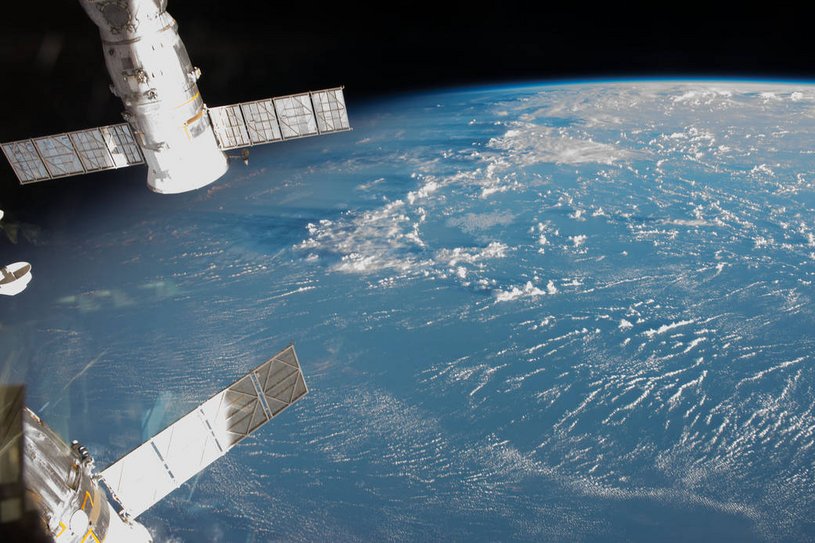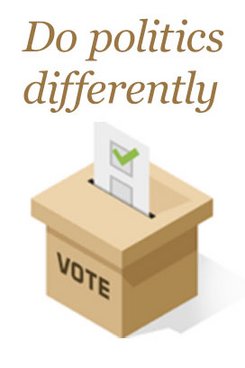
Climate Change
Freak weather conditions, decreasing crop yields, melting polar ice-caps and rising sea levels. We all know that the main way to address climate change is through reducing our global carbon emissions – most experts agree on that. But even though we know that, the pace of change is too slow. We, our children, and future generations are in danger. We desperately need substantive global cooperation.
Governments say they'll take drastic action but they don't - because of Destructive Global Competition. So we need to do more than just protest. We need to support a process that makes it in the electoral interests of politicians the world over to act together. We need global solutions! That's why you need to support Simpol.


Global health pandemics
The Coronavirus pandemic has revealed just how fragile national health systems are. Critical shortages of protective clothing and other vital equipment cause many lives to be lost and vast swathes of the global economy to shut down.
But Destructive Global Competition - the need of all nations to keep their economies competitive and attractive to global investors and multinational corporations - means governments must cut corporation taxes and taxes on the rich to keep them in the country. It's little wonder they then don't have sufficient money to properly fund public services, including health services, and people die.
We can't stop dangerous viruses from emerging, but greater international cooperation among governments to levy proper taxes on multinational corporations and to eliminate tax avoidance would allow them to afford emergency stockpiles of critical medical equipment and ensure an equitable distribution of vaccines. Greater global cooperation would mean less loss of life and livelihoods. Global issues need global solutions!
That's why you need to support Simpol.


Mass Migration
In the Western world, how to cope with the movement of people across borders is the question on everyone’s lips.
There are lots of pros and cons to immigration, and even more reasons behind it. Whether displaced by conflict or climate change or responding to economic insecurity, it is the unregulated nature of human movement across borders that drives popular resentment, debate in parliaments, newspapers and living rooms around the world.
Instead of debating whether borders should be opened or closed, the real need is for global cooperation – to lessen the incidence of war, to manage the flow of people and to properly support the poorest countries so that their citizens can make a decent life in their home country and won't feel a need to migrate. That can only happen if nations cooperate.
That's why we need a citizens' global treaty like Simpol.

Extreme Wealth Inequality
With 1% of the world population owning 44% of the world’s wealth (according to the Credit Suisse Global Wealth Report 2019), extreme wealth inequality is usually thought of as a national issue. But the ability of the rich, global investors and multinational corporations to easily move their operations across national borders leaves all governments fearful of taking action.
In fact, this vicious circle of Destructive Global Competition often has the perverse effect of driving governments to further reduce taxes on the rich and other globally mobile entities, so making the wealth gap even wider.
Today, wealth inequality is a global problem that needs a global solution. National efforts are important, but the problem can only ultimately be dealt with at the global level. Which is why you need to support Simpol.

Nuclear disarmament
Nuclear disarmament is the ultimate ‘Prisoner’s Dilemma’ – it would be better for all of us if every country decommissioned their weapons, but no nation is going to be first. No nation wants to leave a rival with a military advantage, despite the global catastrophe of a potential nuclear war.
The reasons for the development of nuclear and other weapons of mass destruction are not always directly linked to Destructive Global Competition. However, what stimulates tensions between nations to the point of war is wealth inequality and competition for resources. In a world where destructive global competition widens the gap between rich and poor, tensions between nations rise, and war looms. And so everyone hangs on to what they’ve got, or even increases the development of their weapons.
Is it any wonder that isolated nations like North Korea pursue nuclear development at all costs? And why, even after the terrible atrocities of the past, no agreement for everyone to disarm has ever been reached?
This is where Simpol really could do the most good, enabling citizens to drive every country to agree to disarm at exactly the same time, and agree enforcement measures to keep it that way, so leaving the world a much safer place.
Tax Avoidance and Tax Competition
The rate of corporation tax around the world has been in steep decline for some time – falling 37% in 37 years between 1980 and 2017. Good news if you're a multinational corporation , not so great for the rest of us. Why? Because the less businesses contribute in taxes to the countries they operate in, the less those governments have to spend on public services like schools, hospitals, and public transport.
So why has the rate of corporation tax been falling so steadily for so long?
The main reason is Destructive Global Competition. Governments want to attract the investment, jobs and tax revenues that big businesses bring, so they cut their corporation tax rates to lure them in. Of course, when one government does it, others feel compelled to do the same.
It’s a tit-for-tat race that sees country after country making big cuts to business taxes and those businesses profiting as a result. Meanwhile, the tax burden is steadily shifted on to those who can't move elsewhere: the poor and middle classes.
It’s this same need to stay attractive to business that sees nations turning a blind eye to Tax Avoidance. Fearing that major businesses might move elsewhere, nations are understandably slow to acknowledge when avoidance is taking place, and we all suffer as a consequence. Only global and simultaneous action can solve this. That's why you need to support Simpol.

Financial Market Regulation
How do you make global financial markets democratically accountable? It’s hard to think of them without thinking about the ‘casino economy’. In an economic culture that encourages taking big risks to make even bigger profits, it’s always citizens who end up footing the bill when things go wrong.
In the context of Destructive Global Competition, the free movement of capital is only making it harder for nations to introduce regulatory measures without incurring costs to themselves.
What’s missing is global governance; global regulations decided not by politicians, but by you. Ideas such as a ‘Tobin Tax’ on all financial transactions have been suggested to keep the markets in check, but only global and simultaneous implementation would guarantee its success.

Space Governance
Space needs to be made sustainable, ensuring all humanity can continue to use it for peaceful purposes and socioeconomic benefit now and in the long term.
More than 1,800 satellites orbit the Earth, providing social, scientific, strategic, and economic benefits to billions of individuals throughout the globe. Yet the ability to provide important benefits from outer space is now threatened by a number of challenges. One is the increasing density of debris in orbit. This could quickly lead to a sharp decrease in our ability to sustain the benefits that space provide to the entire world.
Without cooperative global governance we would be unable to use the space environment for national security purposes, earth observation, telecommunications (including financial transactions, internet, telephone, data transfer, and television), navigation, scientific exploration, or economic development. Indeed, human spaceflight in Earth orbit could come to an end.
Today, space governance is a global issue that can only ultimately be dealt with at the global level. Which is why you need to support Simpol.

Sustainable business
We all want corporations to act responsibly and sustainably. If they do, they’re more likely to attract our custom, our loyalty, and even our talent.
But corporations operate in a global market – their shares are quoted on global stock markets, and they are open to competition from others around the world. In this globally competitive market, any responsible or sustainable action a business takes which risks reducing profits can put them at a disadvantage to competitors. The question becomes – can a business afford to act responsibly, if competitors aren’t doing the same?
Without appropriate global governance - global regulations - even the most ethical businesses will limit their responsible choices to those that don’t undermine profits. This is why the scope of sustainable or responsible business is so limited, and why we only ever see a few businesses really act sustainably if it can give them a market edge.
So how can we make ALL businesses behave responsibly and sustainably? There is no viable alternative other than international cooperation to implement appropriate global regulations.




